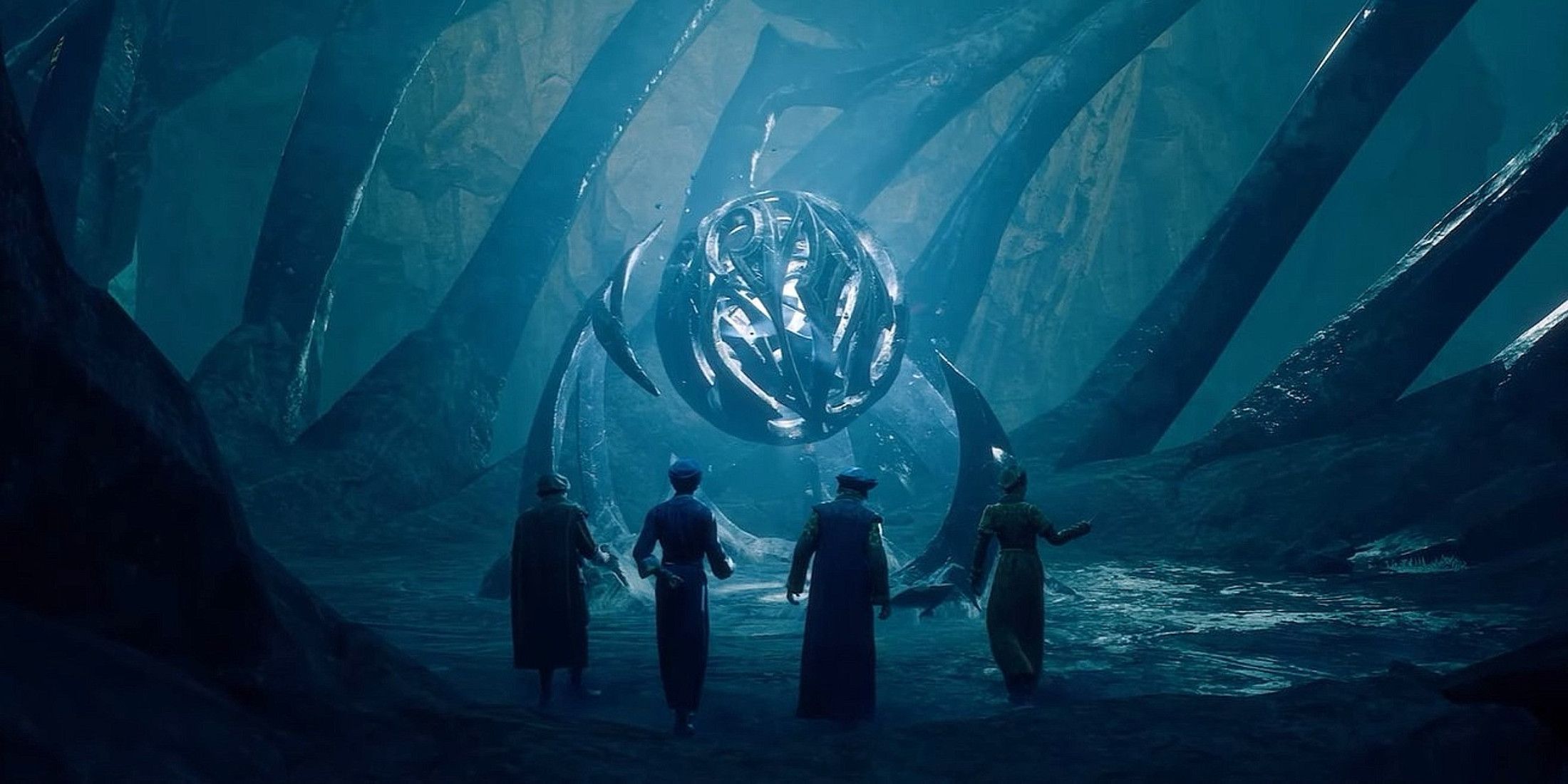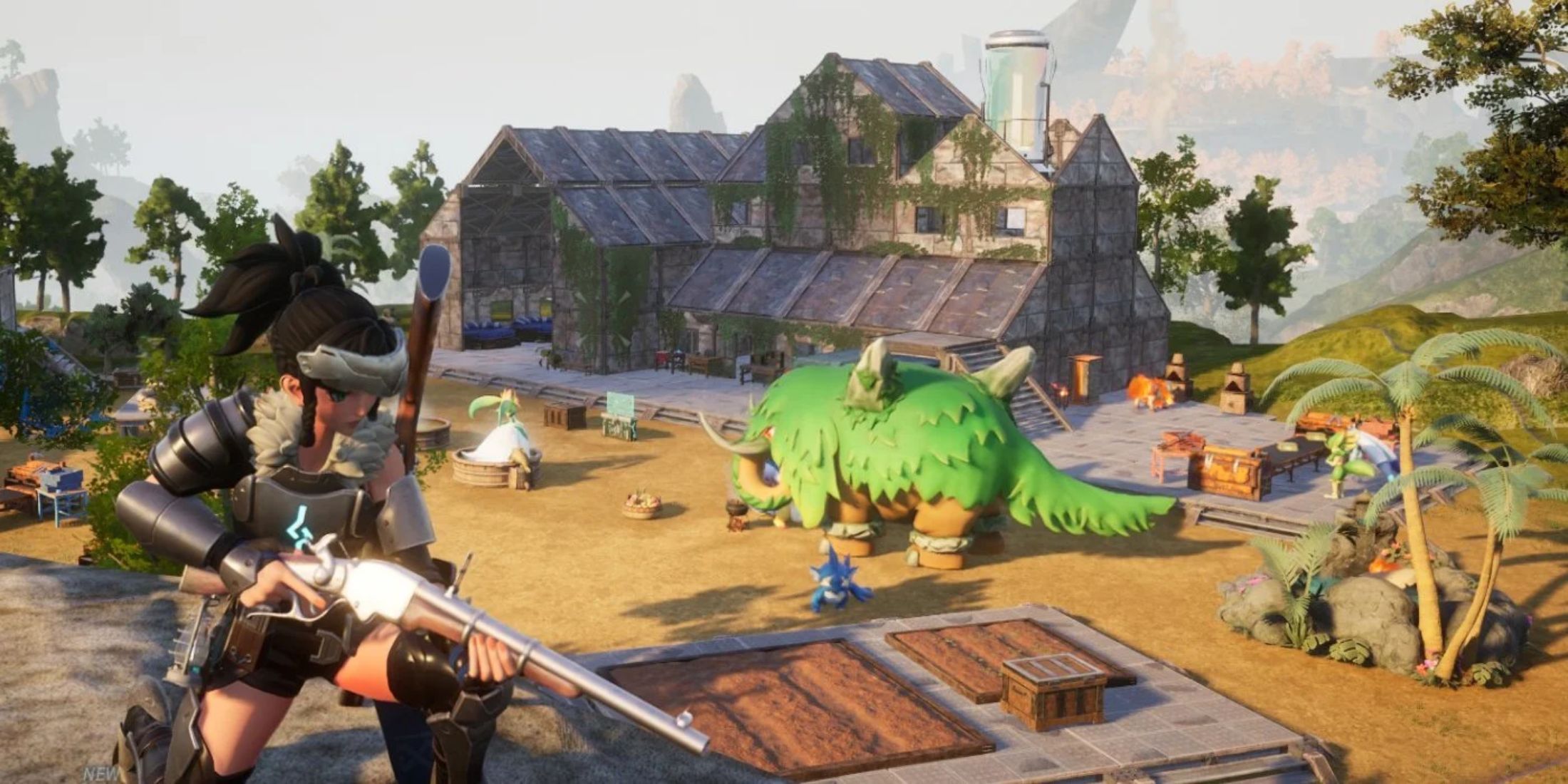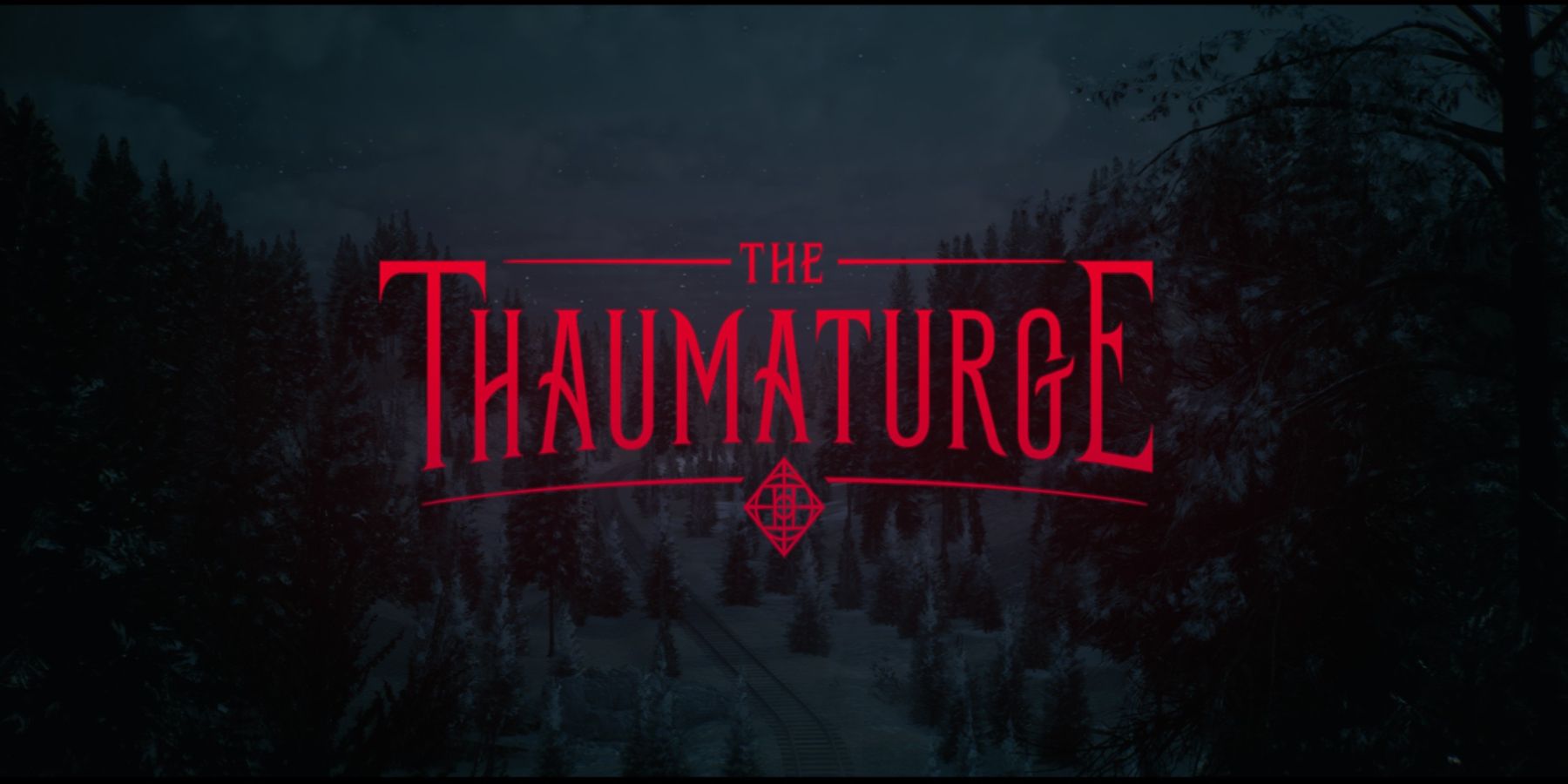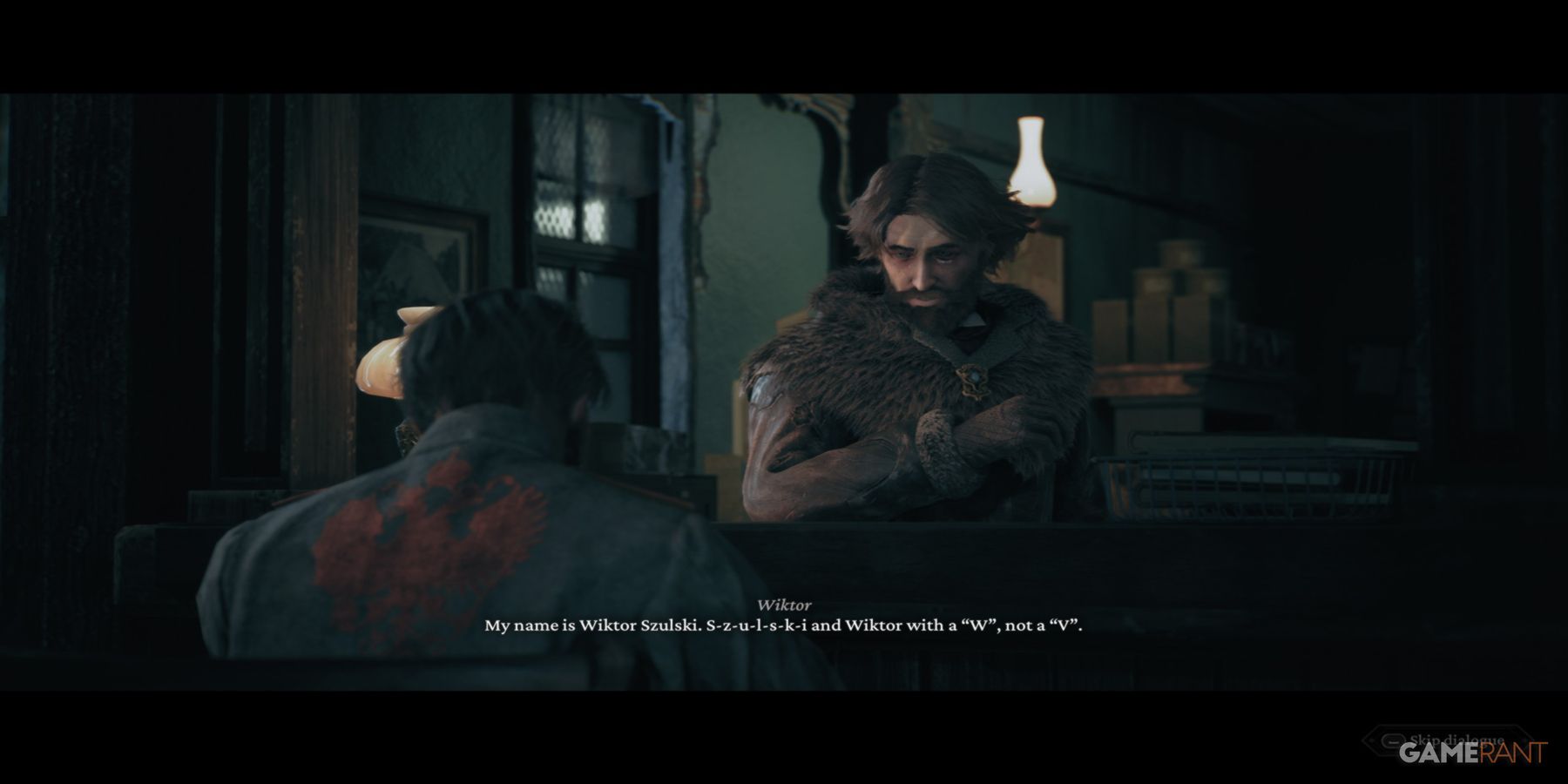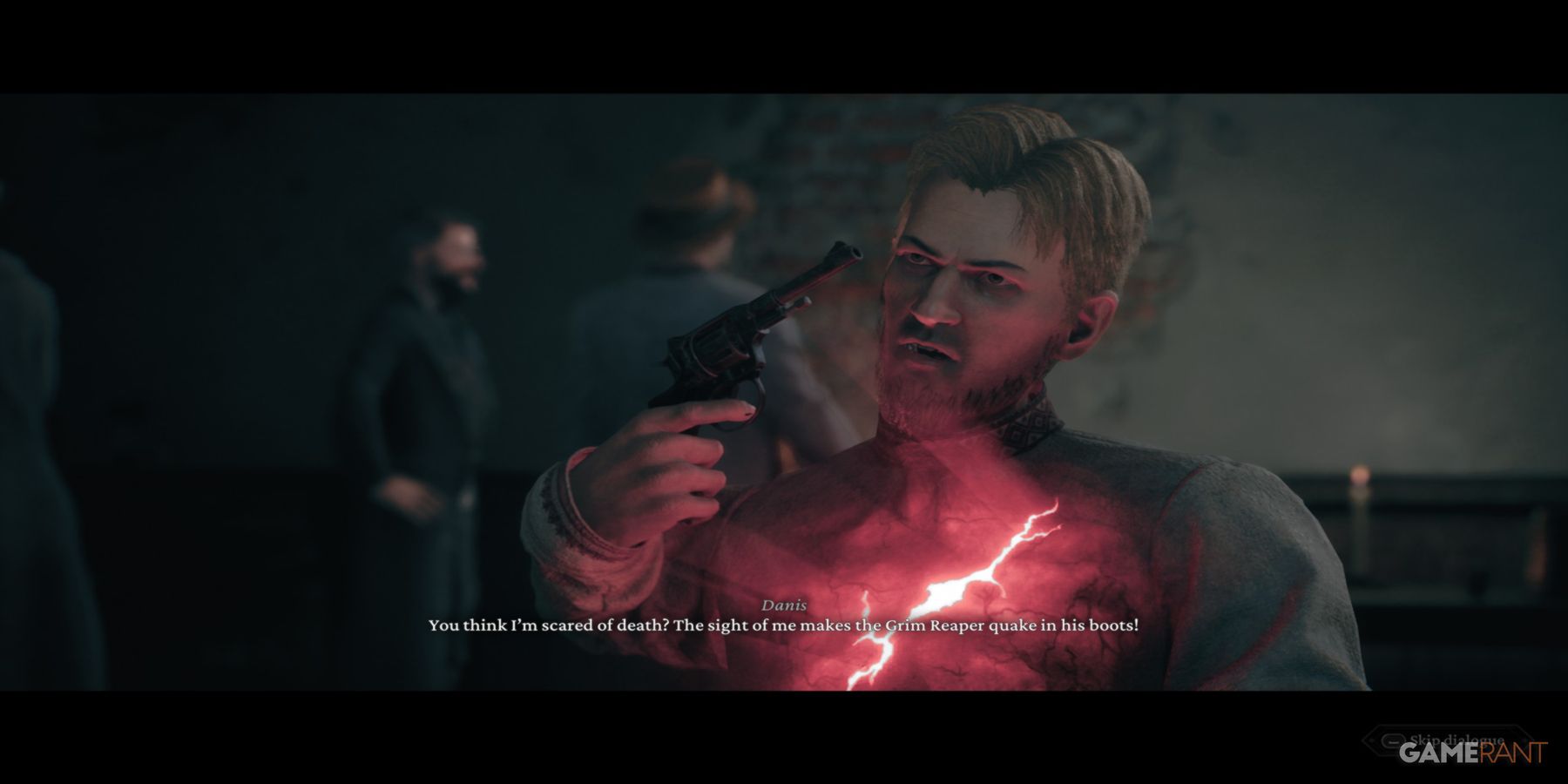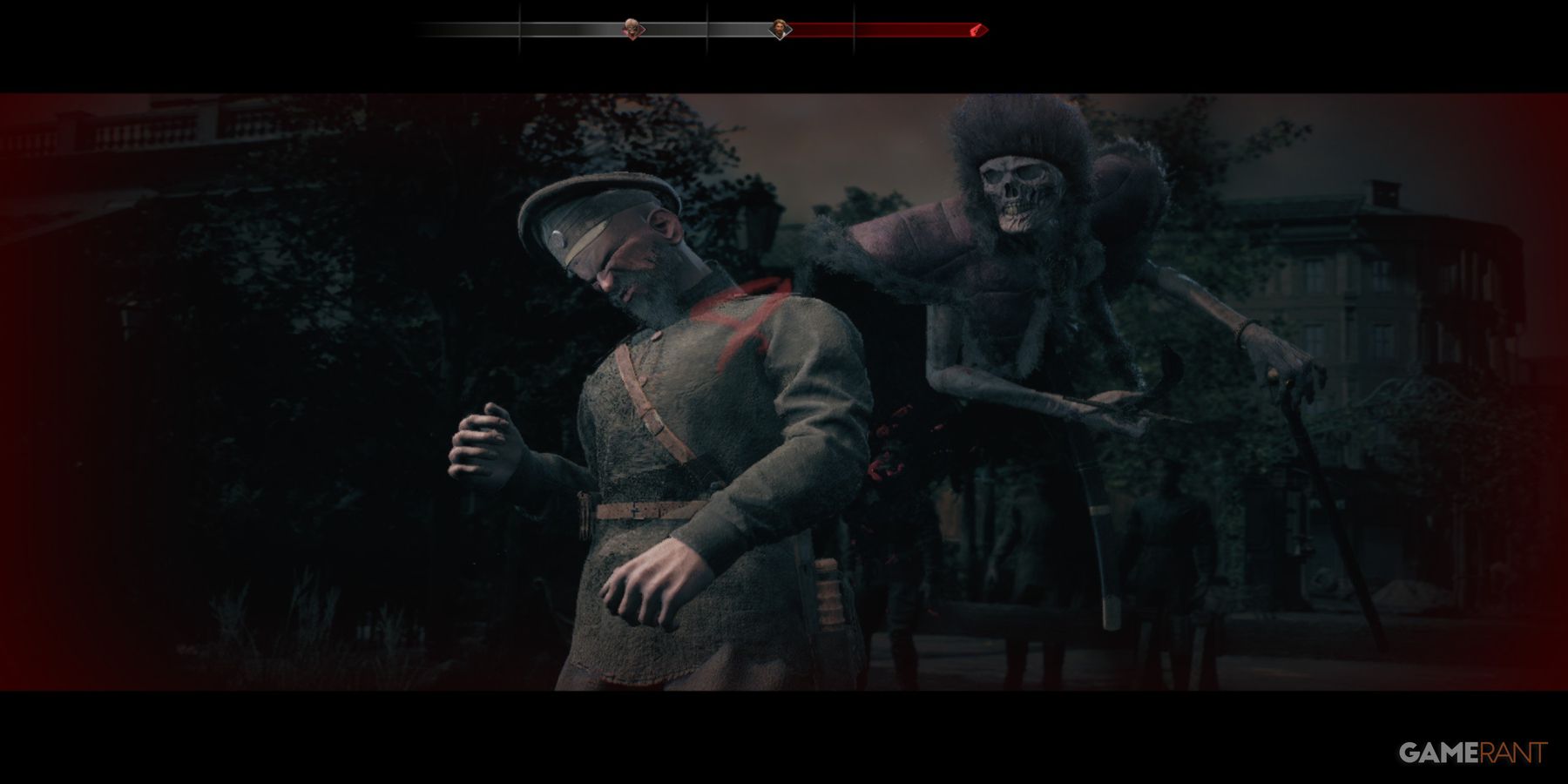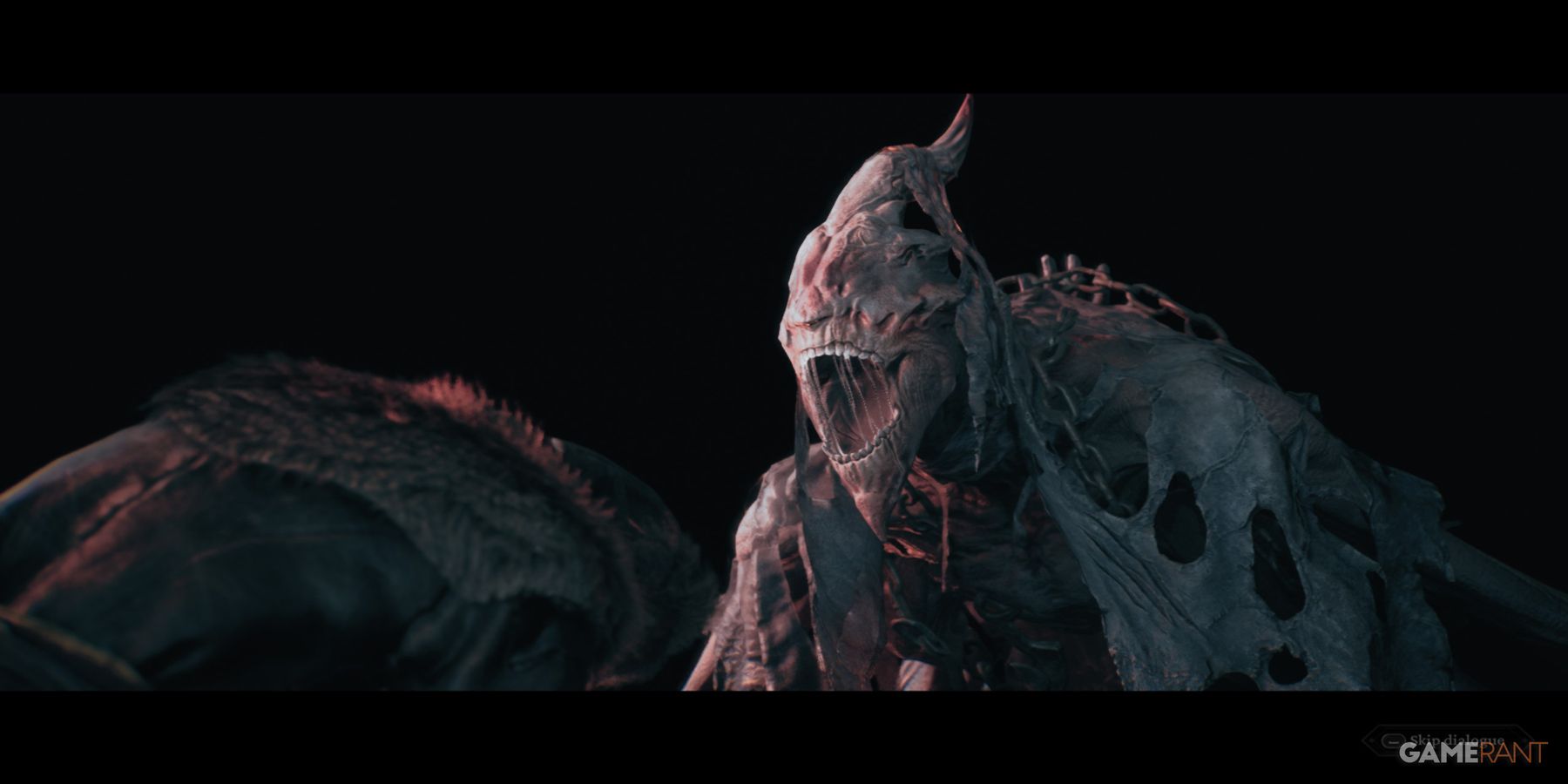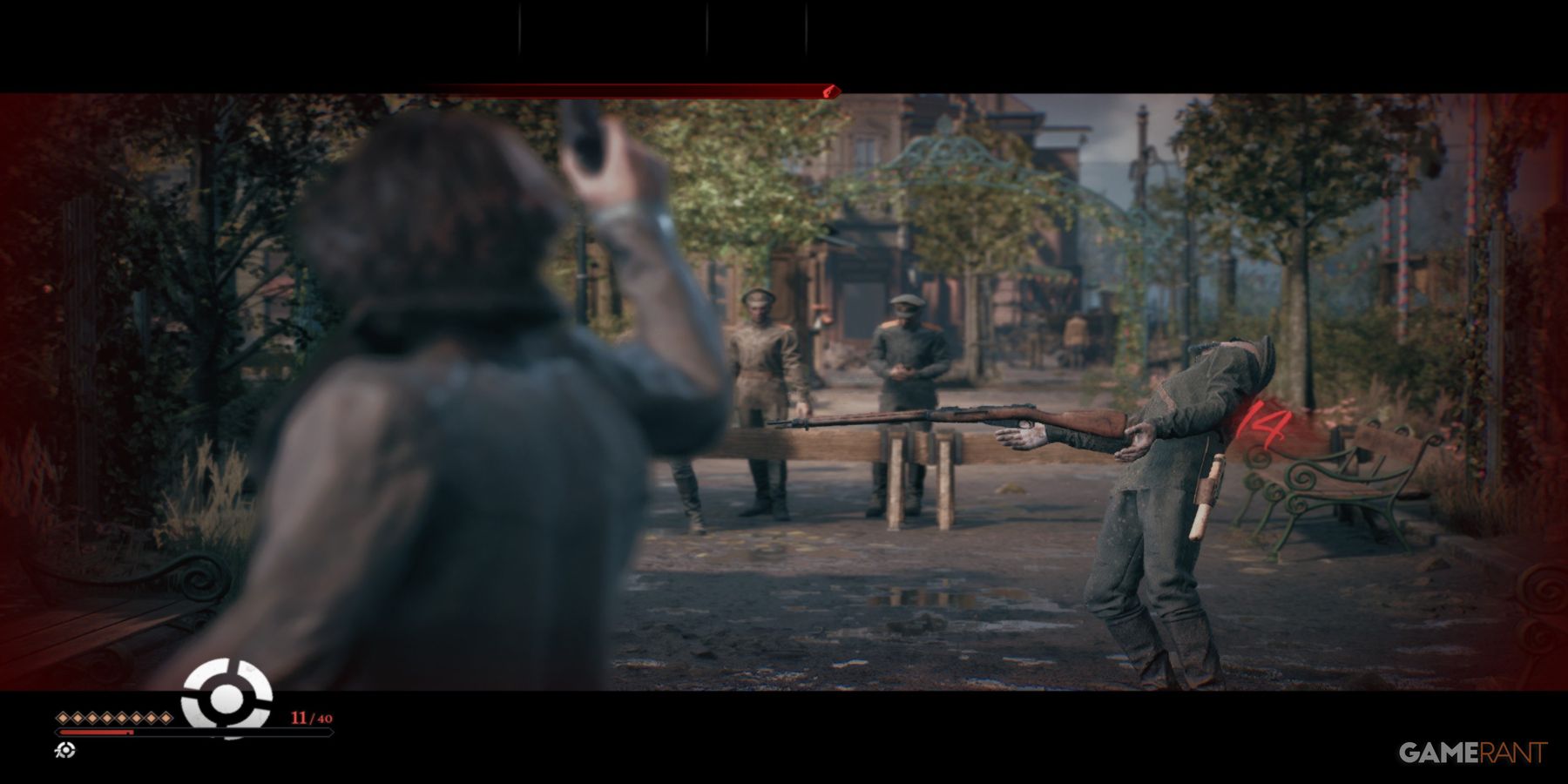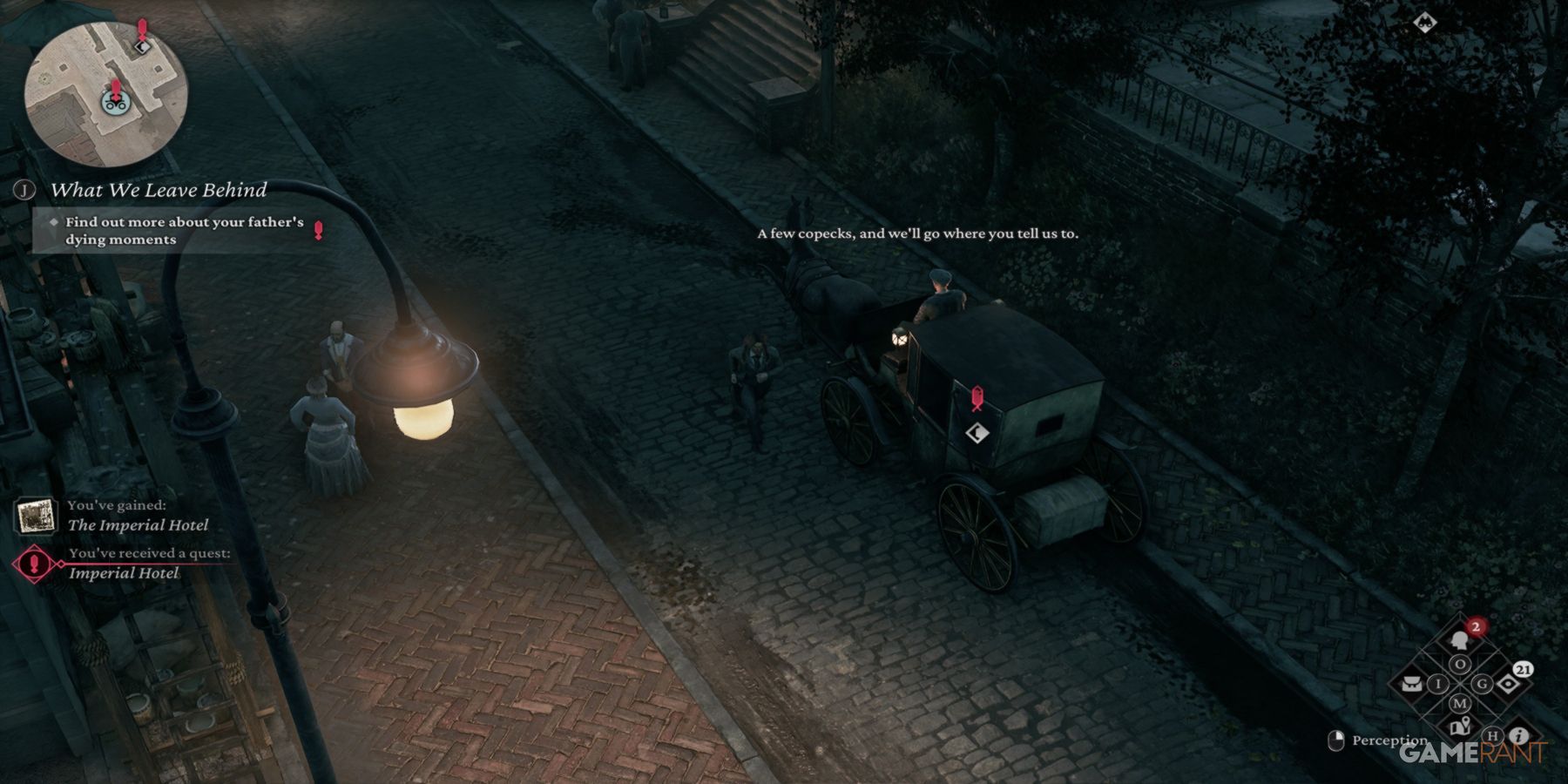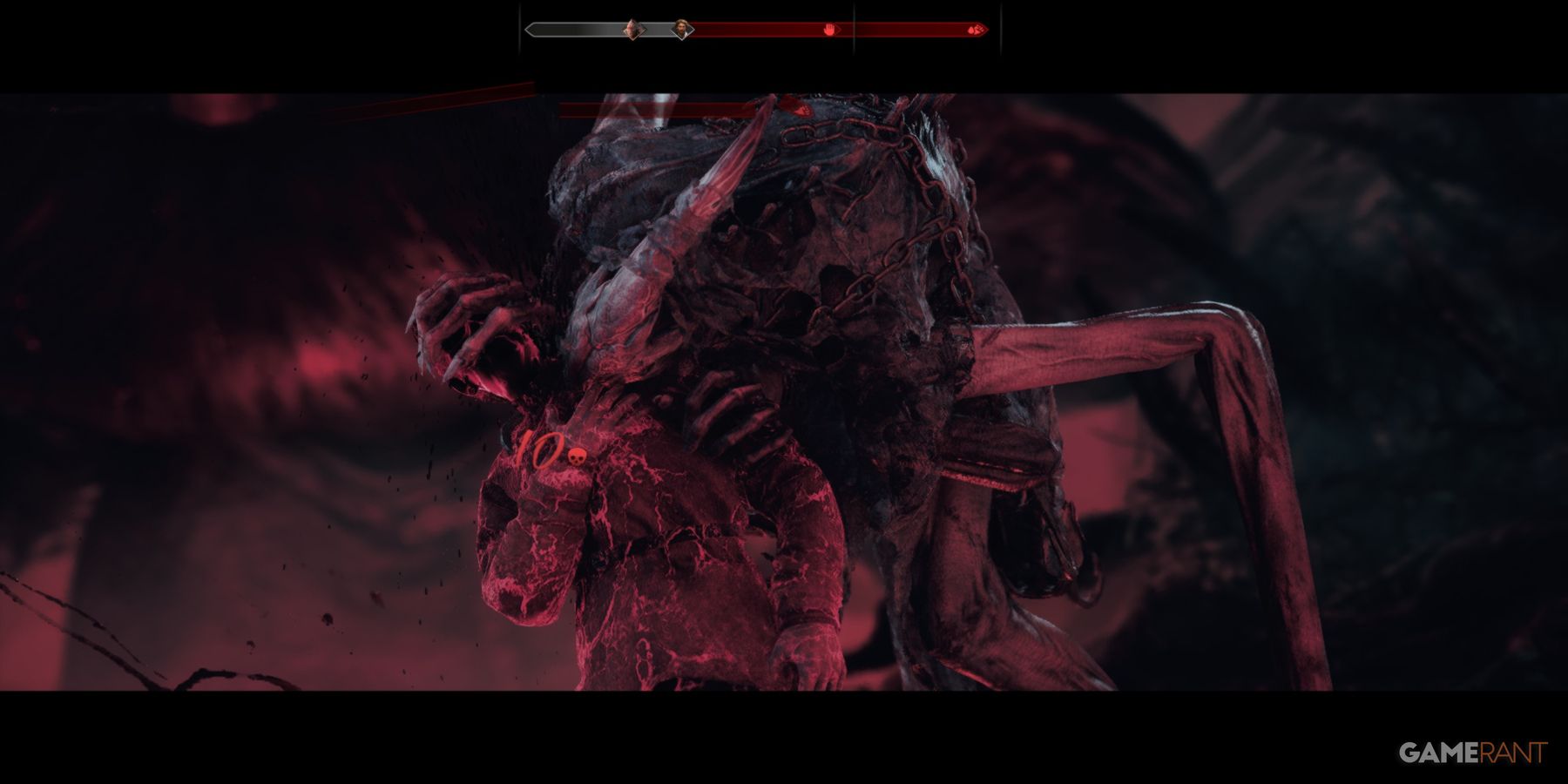Highlights
- Stellar demon designs and emotionally charged characters make The Thaumaturge a unique and captivating RPG experience.
- However, repetitive gameplay loop and hit-or-miss voice acting may deter some players from fully immersing in the game.
- Despite some flaws, The Thaumaturge's intriguing story and captivating world-building set in 1905 Warsaw make it a magical adventure worth exploring.
Right from the beginning, it's easy to see the extensive work and effort that make The Thaumaturge feel like players are stepping back into the 20th century. From the rough-looking, wet, and older-style buildings found in the countryside of the time, to the beginning of 1905 in Warsaw, developer Fool's Theory put a lot of effort into creating a lived-in, gritty, and believable world. That realism juxtaposed with the ethereal nature of the various demons found throughout, and the magic practiced by protagonist Wiktor Szulski creates a new sort of reality that could be almost believable in the real world.
But despite The Thaumaturge's world-building being top-notch, the game suffers from a decidedly uninteresting gameplay loop that will make it difficult to capture the minds and hearts of players and fans of both mystery and occult games. It is a huge part of what users will be doing between story moments, and some will undoubtedly become bored despite a bewitching RPG tale and uniquely designed monsters.
A thaumaturge performs magical or miraculous feats and Wiktor fits the definition to a T, using his abilities to solve problems, start and end fights, and discover clues hidden within the world. Most of these are items hidden out in the open, but without his magical sense, Wiktor would have no way to discover them otherwise. It makes for a bit of a guessing game, but it is also the game's weakest aspect. Most missions follow the same steps and paths: a quest is discovered, the player runs around a specified area attempting to find all the clues to unlock various discussion topics, and then the mission is completed by returning to the quest giver or the proper location.
It's during the clue hunting that the game may struggle to maintain a player's attention. Most will discover early on that mashing the button that spreads Wiktor's search magic and walking around the entire map will lead to easily finding just about every clue a user needs to find for the mission. There is the possibility in some missions to simply not look for every item that unlocks different options when talking to NPCs, but this gives players fewer choices during those final discussions.
A missed clue might force Wiktor into a combat situation when finding a specific item would allow him to bypass it through dialogue choices. Players will quickly discover that finding every hidden item for the quest allows a plethora of choices, and most will likely gravitate towards finding everything to ensure they have more options. This, in turn, means a lot more (on PC) right-clicking endlessly while walking around to each nook and cranny of the map. It also tends to slow down some of the better parts of the game's storylines, though simply rushing through to get to the next part is still mostly possible.
The story of The Thaumaturge is a slow burn, but it burns brightly. Multiple narrative strands snake through the main story and the numerous side quests, with the many different characters weaving an interesting tapestry driving the user's need to know what will happen next. There are many surprising turns, and Wiktor has some moments that bring the 20th-century backdrop into sharp focus. It is very entertaining, and the weaving of Wiktor's detective and mystic abilities into the time the story takes place adds another level to that need-to-know drive that surrounds good storytelling.
The choices users make affect everything in the game as well, so players will require more than one playthrough to ascertain every facet of the story. The racism of the denizens can be a bit rough at times, but even these stories create a narrative that is hard to put down. It almost reads like a book, but this might be due to the RPG's focus on storytelling and the overabundance of information the game consistently throws at the player. The RPG trope of gifting users worldbuilding collectibles can be found everywhere, adding more nuance and details to a world deeply rooted in the past. The world feels rather large at first, though it does seem to shrink in size as players move about and discover fast-travel locations. There is a lot of walking to be done, and some of the city locations seem to blend into each other, but it is understandably difficult to make different sections of the same city very distinct from each other.
Graphically, the game seems well-thought-out and serviceable, though there are weird clipping issues in various scenes. The cities and forests in The Thaumaturge are gorgeous though, and are some of the best looking set-pieces for a game so far this year. There is a distinct lack of style in the vast majority of the NPC's clothing, wearing nothing but trousers and shirts with maybe a basic coat, while the protagonist and story-centric NPCs seem to be more colorfully dressed. This may be a way to show the difference between those with money and those without, which relegated the peasantry of the day to mostly nondescript clothing, but it can be a little distracting when it repeats ad nauseam throughout the game. It doesn't look bad necessarily, but players will notice the same set of clothing being almost copy-pasted onto bodies with different faces. And face designs are a decidedly bright point in the game, especially Wiktor's. When first introduced, his face is etched with fatigue, his eyes a bit sunken, and it is obvious that something is wrong. The detail in not just Wiktor's face, but also in the faces of the other NPCs when taking or dealing damage is spectacular for its sense of realism. Every emotion is displayed almost perfectly on humans, but the ones who steal the show are decidedly not human and are the demons known as Salutor.
These demons are attached to human emotions, and their designs are both scary and fascinating. Wiktor starts the game with one already attached to him that he treats as an old friend and the others he encounters on his journey are so well-designed as to be memorable. Full of teeth, chains, blood, and sometimes multiple appendages, each usually carries human or animal characteristics as well, making them truly formidable. Many quests revolve around capturing these entities, though completing the quests usually isn't enough to capture them outright. Wiktor must fight them to subdue them, and the battlefield this takes place on can be rather terrifying. The Thaumaturge does love using a regular and sometimes dull color palette under normal circumstances, but these fights are all red, black, and white and are vicious affairs.
Most of the fights against Salutors also have an added wrinkle to make them even more difficult, such as sending a shockwave across the battlefield that stops certain attacks from landing. They may seem unfair on the first attempt, but each has an ebb and flow that once discovered makes them feel almost trivial in their difficulty. Once captured, these demons add more depth to various aspects of the game, from opening up new dialogue options, granting new combat abilities, and even allowing Wiktor to manipulate people in various ways using their emotions.
Combat in The Thaumaturge is turn-based but set to a sort of timer found in some recent RPGs, like Octopath Traveler 2. Some attacks are faster but do less damage, while others take more time but deal more pain. It's a standard set-up until the game unlocks abilities that can be tacked onto and also switched out with each attack that add bonuses like ensuring maximum damage is done or adding a damage-over-time effect to an attack. The proper combination can feel overpowered in certain moments but not paying attention will quickly lead to a loss and a game over, so players will need to focus on setting the proper order for attacks.
Not only does Wiktor attack, but he can also pick and choose from his captured Salutor stable to send the creatures out to fight as well. These creatures can pack a huge punch if used right, while some have attacks that will heal Wiktor as well, an ability greatly needed during the first hours of combat. Pistols, knives, swords, and even the occasional rifle are all used in combat, mirroring what was available at the time. It is a fun back-and-forth system for battling, discovering the perfect slots for certain buffs that turn regular attacks into something different and feel powerful like what a mage should be when fighting a normal attacker.
But there is a weird, almost immersion-breaking feeling though, after watching Wiktor get stabbed and shot multiple times during a single fight. Wiktor taking damage is inevitable, and the repetition of being shivved and punched and shot over and over again can start to wear on a player's patience. Though games require the suspension of disbelief, it sometimes feels like The Thaumaturge is requesting too much in its combat. There are also weird parts where losing a fight would make more sense in the story, but losing just brings the game over screen. So, even after winning the fight, it still feels like a loss based on where the story goes. It almost makes the preceding minutes spent in combat feel completely pointless.
There are a lot of side missions for users to tackle, and like most great RPGs, exploration is required to find a large portion of them. These range from the standard fetch quests to battling for a lady's honor to discovering various landmarks within Warsaw. One of the most visually entertaining ways to earn experience points is discovering locations where Wiktor busts out his drawing pad and quickly sketches the scene in front of him. Children eating sweets, finding a man playing a music box in the park, or even simply finding something that triggers a memory of Wiktor's past brings an almost human side to the protagonist that might be lacking otherwise. There are other missions where the clarity on why is obscured though, but some of the confusion can be attributed to the game's voice acting.
The English voice-acting in The Thaumaturge is mostly good, with some bordering on great. Wiktor himself is portrayed with the utmost care, as well as his immediate family, but there are other moments when an NPC talking can shatter the immersion with their accent, or lack thereof. Though this does hearken back to suspending disbelief in gaming, the sudden arrival of a serious Bostonian accent might make some almost laugh out loud. These moments are luckily few and far between, but they're memorable for the wrong reasons. Most users will be able to laugh them off as long as they continue on through the game, but those looking for something a little more accurate will be sorely pressed to find it here.
This also stretches to the sounds of the cities themselves. Most of the time, there is sufficient background noise to feel right at home in the city, but the sounds become so dull sometimes they're hard to make out and become more white noise. Each player will be affected differently by this, and truly most probably won't even notice as they run through the various areas. The sound design for the Salutors is just good enough to be creepy as well, and will more than likely add to the memorable moments they occupy within a player's mind.
The Thaumaturge is a game made with a lot of love and hard work by Fool's Theory. That much is apparent within the first couple of hours and grows more obvious the longer a user plays. Its lack of a way to make searching for clues interesting may lead some players astray, but they will miss out on a demon-fueled magical adventure. It stumbles in other places, but it more than makes up for it with its monster designs and terrific storytelling. The Thaumaturge's mixture of 20th-century technology and magic should prove too fun to pass up, and players looking for a detective mystery with some intrigue and nightmares might have found something they can't find anywhere else.
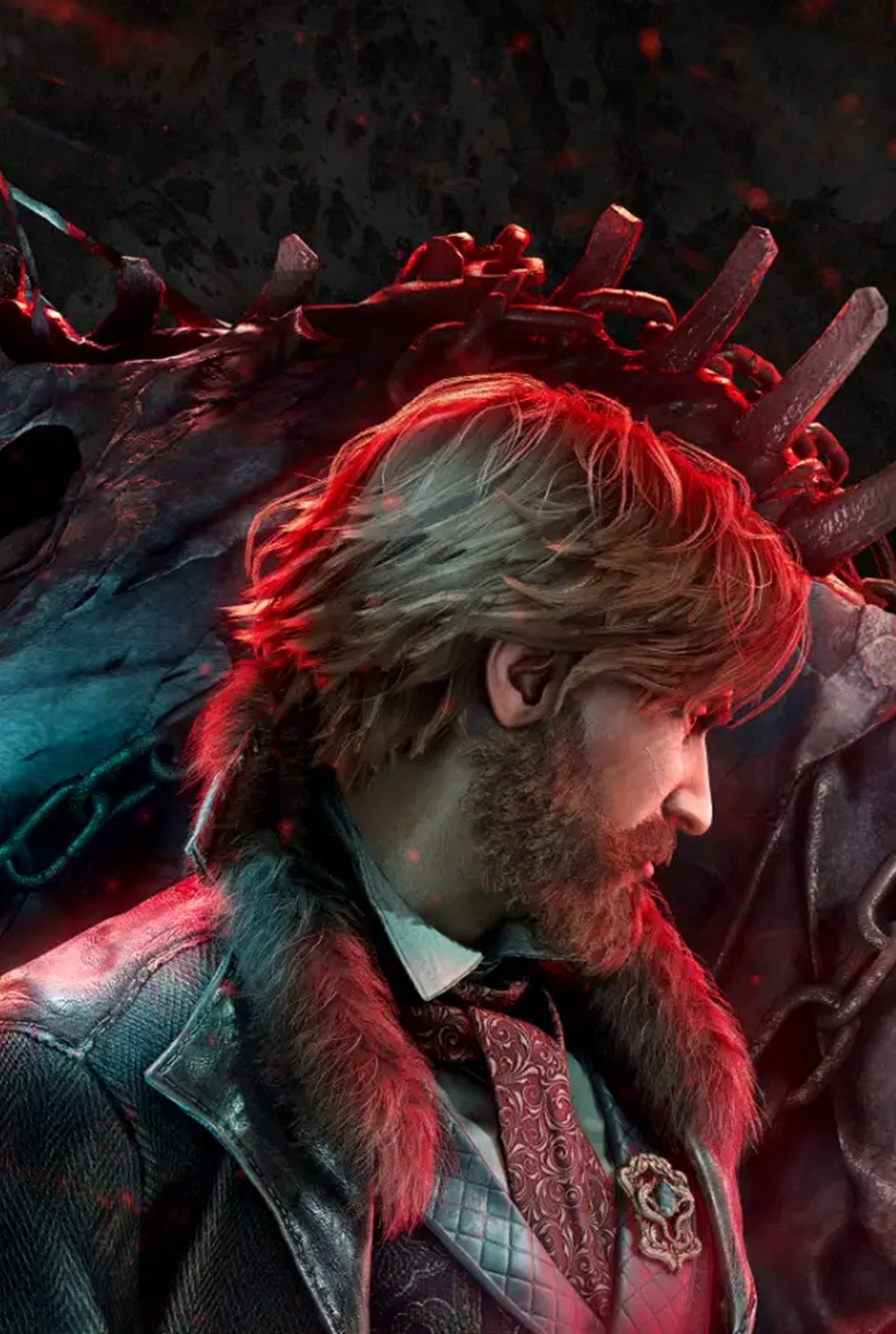
The Thaumaturge
Reviewed on PC
The Thaumaturge is a story-driven RPG set in 1905 Warsaw, Poland. Players take on the role of Wiktor, who can see entities called Salutors that normal humans cannot. It features isometric gameplay, turn-based combat, morally ambiguous choices, unique character development features, investigation mechanics, and much, much more.
- Stellar Demon Designs
- Intriguing Story
- Emotion-filled Characters
- Repetitive Gameplay Loop
- Voice-acting is Hit or Miss
- Some Bland Clothing Designs
The Thaumaturge launches March 4 on PC. Game ZXC was provided a PC code for this review.

